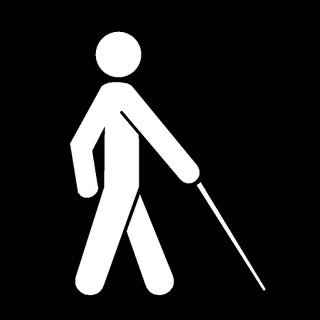Documentation Guidelines: Blindness and Low Vision
 Students seeking support services from Services for Student Accessibility Services (SAS) on the basis of a previously diagnosed vision loss must submit documentation that verifies their eligibility under Section 504 of the Rehabilitation Act, the Americans with Disabilities Act (ADA) and the ADA Amendments Act. The documentation must describe a disabling condition, which is defined by the presence of significant limitations in one or more major life activities. Merely submitting evidence of a diagnosis is not sufficient to warrant academic accommodations. Documentation from a recognized agency as being eligible for services may be considered, but specific accommodation requests may require additional documentation. Please do not hesitate to contact SAS at 956-882-7374 on the Brownsville campus or 956-665-7005 on the Edinburg campus if you have any questions.
Students seeking support services from Services for Student Accessibility Services (SAS) on the basis of a previously diagnosed vision loss must submit documentation that verifies their eligibility under Section 504 of the Rehabilitation Act, the Americans with Disabilities Act (ADA) and the ADA Amendments Act. The documentation must describe a disabling condition, which is defined by the presence of significant limitations in one or more major life activities. Merely submitting evidence of a diagnosis is not sufficient to warrant academic accommodations. Documentation from a recognized agency as being eligible for services may be considered, but specific accommodation requests may require additional documentation. Please do not hesitate to contact SAS at 956-882-7374 on the Brownsville campus or 956-665-7005 on the Edinburg campus if you have any questions.
An ophthalmologist, optometrist or other qualified professional should make the diagnosis and complete the appropriate documentation. The diagnostician should not be a family member of the student.
Documentation should include:
1. Diagnosis: statement of vision-related disability with supporting numerical description
including visual acuity with and without correction.
- Onset of diagnosis
- Date of last clinical contact
2. Evaluation: the age of acceptable documentation is dependent upon the nature of the
condition and the student’s request for accommodations; however, documentation that reflects
the current impact on the student’s functioning should be submitted. Visual disabilities of a
changing nature may need to be documented more frequently.
- Assessment procedures and evaluation instruments or tools used to determine diagnosis
- Narrative summary of assessment results
- Present symptoms that meet criteria for the diagnosis
- Current treatment being received
- Severity of symptoms
- Prognosis of disorder
3. Functional Limitation
- Impact on major life activities
- Behavioral manifestation of the disability, and in particular, the way it impacts the student in the learning context for which the accommodations are being requested.
- Any additional limitations that fall in the substantial range.
- Special considerations (e.g. medication side effects, etc.)
4. Accommodations
- History of accommodations
- (Optional) Recommended accommodations
- (Optional) Additional information that may be helpful in determining accommodations
Further assessment by an appropriate professional may be required if co-existing learning disabilities or other disabling conditions are indicated.
All documentation must be submitted on the official letterhead of the professional describing the disability. The report should be dated and signed and include the name, title, and professional credentials of the evaluator, including information about license/certification. Student Accessibility Services will make the determination regarding whether accommodations are reasonable in the University environment.
All documentation is considered confidential.
